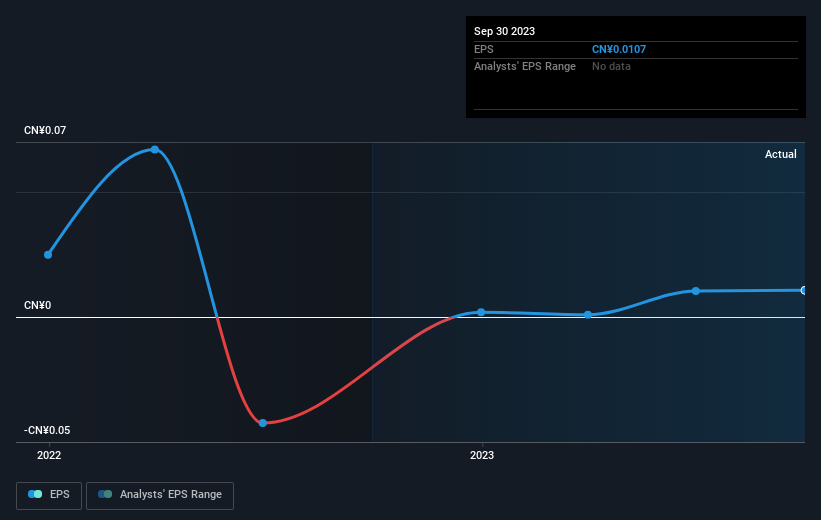The five-year loss for Harbin Bank (HKG:6138) shareholders likely driven by its shrinking earnings

Harbin Bank Co., Ltd. (HKG:6138) shareholders should be happy to see the share price up 11% in the last week. But will that repair the damage for the weary investors who have owned this stock as it declined over half a decade? Probably not. Five years have seen the share price descend precipitously, down a full 86%. The recent bounce might mean the long decline is over, but we are not confident. The fundamental business performance will ultimately determine if the turnaround can be sustained. We really feel for shareholders in this scenario. It's a good reminder of the importance of diversification, and it's worth keeping in mind there's more to life than money, anyway.
On a more encouraging note the company has added HK$275m to its market cap in just the last 7 days, so let's see if we can determine what's driven the five-year loss for shareholders.
Check out our latest analysis for Harbin Bank
There is no denying that markets are sometimes efficient, but prices do not always reflect underlying business performance. One flawed but reasonable way to assess how sentiment around a company has changed is to compare the earnings per share (EPS) with the share price.
Looking back five years, both Harbin Bank's share price and EPS declined; the latter at a rate of 53% per year. The share price decline of 32% per year isn't as bad as the EPS decline. So the market may previously have expected a drop, or else it expects the situation will improve.
You can see below how EPS has changed over time (discover the exact values by clicking on the image).

This free interactive report on Harbin Bank's earnings, revenue and cash flow is a great place to start, if you want to investigate the stock further.
A Different Perspective
Harbin Bank shareholders are down 21% over twelve months, which isn't far from the market return of -20%. Worse still, the company has lost shareholders 13% per year over five years. Generally speaking we'd prefer see an improvement in the fundamental metrics before becoming enthusiastic about the stock. It's always interesting to track share price performance over the longer term. But to understand Harbin Bank better, we need to consider many other factors. Case in point: We've spotted 1 warning sign for Harbin Bank you should be aware of.
If you are like me, then you will not want to miss this free list of growing companies that insiders are buying.
Please note, the market returns quoted in this article reflect the market weighted average returns of stocks that currently trade on Hong Kong exchanges.
Valuation is complex, but we're here to simplify it.
Discover if Harbin Bank might be undervalued or overvalued with our detailed analysis, featuring fair value estimates, potential risks, dividends, insider trades, and its financial condition.
Access Free AnalysisHave feedback on this article? Concerned about the content? Get in touch with us directly. Alternatively, email editorial-team (at) simplywallst.com.
This article by Simply Wall St is general in nature. We provide commentary based on historical data and analyst forecasts only using an unbiased methodology and our articles are not intended to be financial advice. It does not constitute a recommendation to buy or sell any stock, and does not take account of your objectives, or your financial situation. We aim to bring you long-term focused analysis driven by fundamental data. Note that our analysis may not factor in the latest price-sensitive company announcements or qualitative material. Simply Wall St has no position in any stocks mentioned.
About SEHK:6138
Harbin Bank
Provides various banking products and services primarily in China.
Excellent balance sheet with proven track record.


